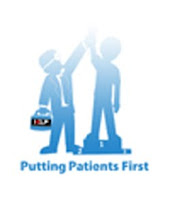
What is Halitosis or Bad Breath?
• Halitosis is an offensive odour from an individual’s mouth as he/she speaks or yawns. It may occur temporarily or may be a chronic problem.
• Bad breath is often viewed as a sign of poor hygiene and can be a very embarrassing situation, if it is obviously being noticed by people standing close to the person.
• It usually indicates some ongoing infective activity in varying extents, as nobody gets bad breath without a reason. Infact it can be treated quite easily, and not only does it give a fresh, clean feel to the individual, it also protects from recurrent throat and oro-dental infections.
What causes Halitosis?
As mentioned above, bad breath usually occurs as a reaction to a source of infection. It happens whenever there is any residual food in the oral cavity sticking to the teeth or gums, or in cases of dryness of the mouth where the protective action of the saliva in clearing the germs from the mouth is reduced. This is why, people normally have bad breath in the morning, as overnight the saliva production is reduced, and people often also sleep with an open mouth, increasing dryness, and thus waking up with bad breath. Other important reasons for bad breath throughout the day include:Poor dental health: Having plaque over the teeth, dental caries, or infection at the base of the tooth, especially involving the gums, with swelling and pus collection in the gums is the most common cause of bad breath.Respiratory tract infections: Sore throat, bacterial rhinitis and sinusitis, with yellowish-green nasal discharge, and swollen lymph nodes (swollen glands) in the neck, are other important causes of bad breath.Cigarette smoking: This is a common self-induced cause of bad breath, and the offensive smell of cigarette is not even masked well with mints, etc resulting in a typical unpleasant odour, that can’t be missed.
General body illnesses: Some organ diseases are also known to cause typical mouth odours, which can be important indicators to the disease, such as liver disease, chronic kidney failure, diabetes, or chronic lung disease.
How can Bad Breath be prevented or treated?
• Bad breath can be treated and prevented by ensuring good oral hygiene as well as treating any other sources of infection that may be present.
• In addition to daily morning brushing the following tips can be helpful:
• Brushing twice a day and rinsing the mouth after every mea
l• Flossing should be made a daily habit• Those having a tendency towards dry mouth should make it a habit to munch on fresh vegetables like salads, and can intermittently chew on sugar free gums or mints.
• Using a good quality mouthwash at regular intervals can also help.
• A regular dental check-up at least twice a year, even in the absence of any symptoms is recommended, to get them cleaned and detect any caries or cavities early.
• However, if these basic remedies do not resolve bad breath it is important to get a general health check-up done to rule out any likely serious bodily disorders. The new, modern point of view on teeth and its protection:
• Teeth, saliva and chewing are absolutely critical in pulping up the food we eat. Infact digestion starts in the mouth itself and if the food is not chewed thoroughly before swallowing, it takes longer to digest it, and often the tougher foods like corn, peas, chick peas (chana), kidney beans (rajma), legumes, which are rich in bodily proteins are passed unutilized in our stools.
• As you grow older, your food intake will reduce. Add to it bad teeth/ rotting teeth removed from your jaws, leaving you with few teeth to chew you food with. You will naturally tend to swallow food instead of chewing it in later years, and thus food absorption is severely decreased, weakening you body and the immune system from fighting diseases.
• It is thus crucial to understand that unlike what our parents and grandparent did, we should not leave tooth and gum problems unattended, or attend to it with ineffective home remedies. It is increasingly being realized how crucial good teeth are in maintaining general health. Contrary to olden day practices of removing spoiling teeth, dentists now suggest that teeth need to be preserved at all costs even after they start to decay. The latest technology includes means to clean and cap tooth cavities, perform root canal surgeries to correct decay and prevent it from spreading to other teeth.



1 comment:
Flossing sure does keep your mouth more healthy. But, I had a hard time getting into the habit because I did not like putting my fingers into my mouth. Then some years ago, I found Gripit Floss Holders - www.gripit.biz. These handy devices with their own floss supply solved the problem. I now floss every day with ease.
Post a Comment